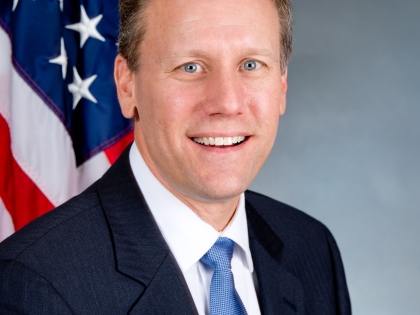
Mandate Relief Proposed

When I speak to local government leaders across Central New York, the one common complaint I consistently hear is with the burden of unfunded and unnecessary state mandates. These mandates passed down by the state impose added costs for counties, cities, towns, villages and school districts alike, and undermine the ability of local leaders to deal with more pressing local problems. As a result, unfunded and unnecessary state mandates put pressure on local governments to raise local property taxes.
For the past two sessions, I have introduced a bill that would make unfunded mandates unconstitutional. Last week, I again attempted to advance the bill through a procedural vote that would pull it out of committee and bring it to the floor of the Senate. Unfortunately, the vote to move the bill failed to garner enough votes. But, there is still hope for serious mandate relief this year.
This past week, Governor Spitzer and Lieutenant Governor Paterson announced their own legislative proposals to eliminate unnecessary and outdated state mandates. Their proposals take specific aim at several provisions that drive up costs for local governments.
The Spitzer Administration hopes to reduce the financial burden on local governments by easing local government procurement procedures, by updating the Wicks Law threshold, by easing laws that dictate interest rates paid by local government, and by streamlining housing code enforcement. All of these must be given serious and careful consideration by the legislature.
Just to give a few examples of how some of these changes may help, right now, local governments are mandated to pay a fixed rate of 9% on outstanding judgments. This rate is far above market price, and provides windfall profits for lenders who specialize in financing these local government payments. The proposed legislation will set market-based rates, but also cap these at 9% should future interest rates creep above that figure. This change will save millions in wasted taxpayer funds across the state.
Another example is the proposed changes to housing code enforcement. When it comes to housing code maintenance, local governments are currently required to adjudicate these actions through the courts. This is a costly practice that creates backlog and unnecessary expenses. Under the proposed changes, local entities will be permitted to use an administrative process for housing code enforcement. Again, a minor change that will save hundred of thousands, if not millions, for local taxpayers in our state.
There are many more changes that will help bring mandate relief. But it is imperative that the state at the very least be cognizant of the fiscal impact our action or lack of action places on local government and on local taxpayers. I am pleased that the Spitzer Administration is giving serious consideration to the burden placed on local governments by the state, and offering solutions.

